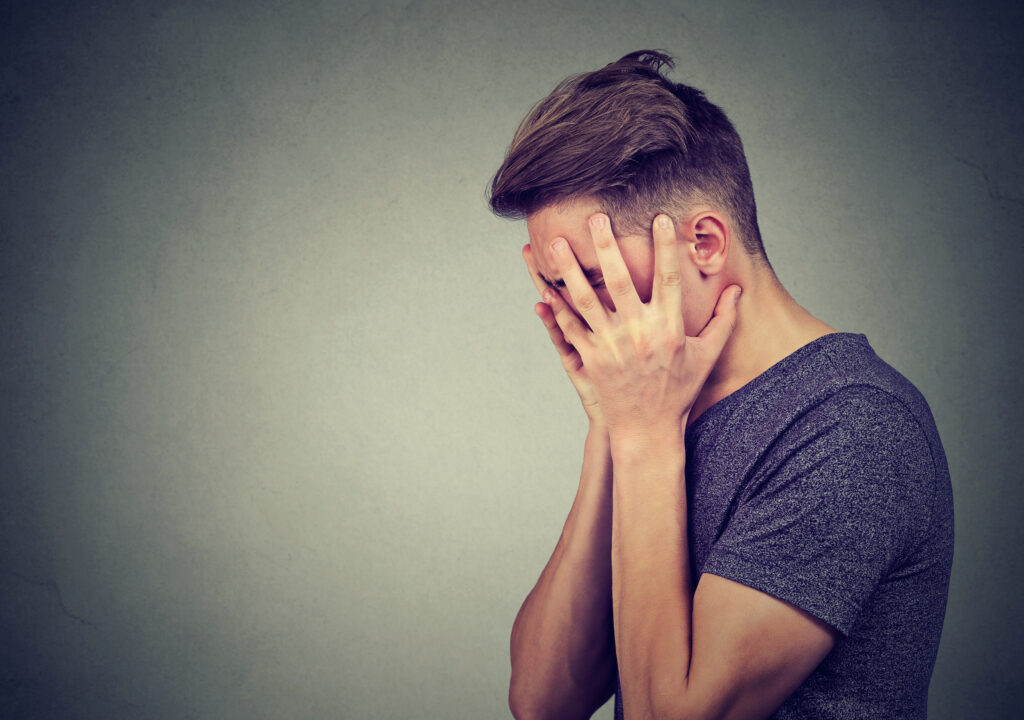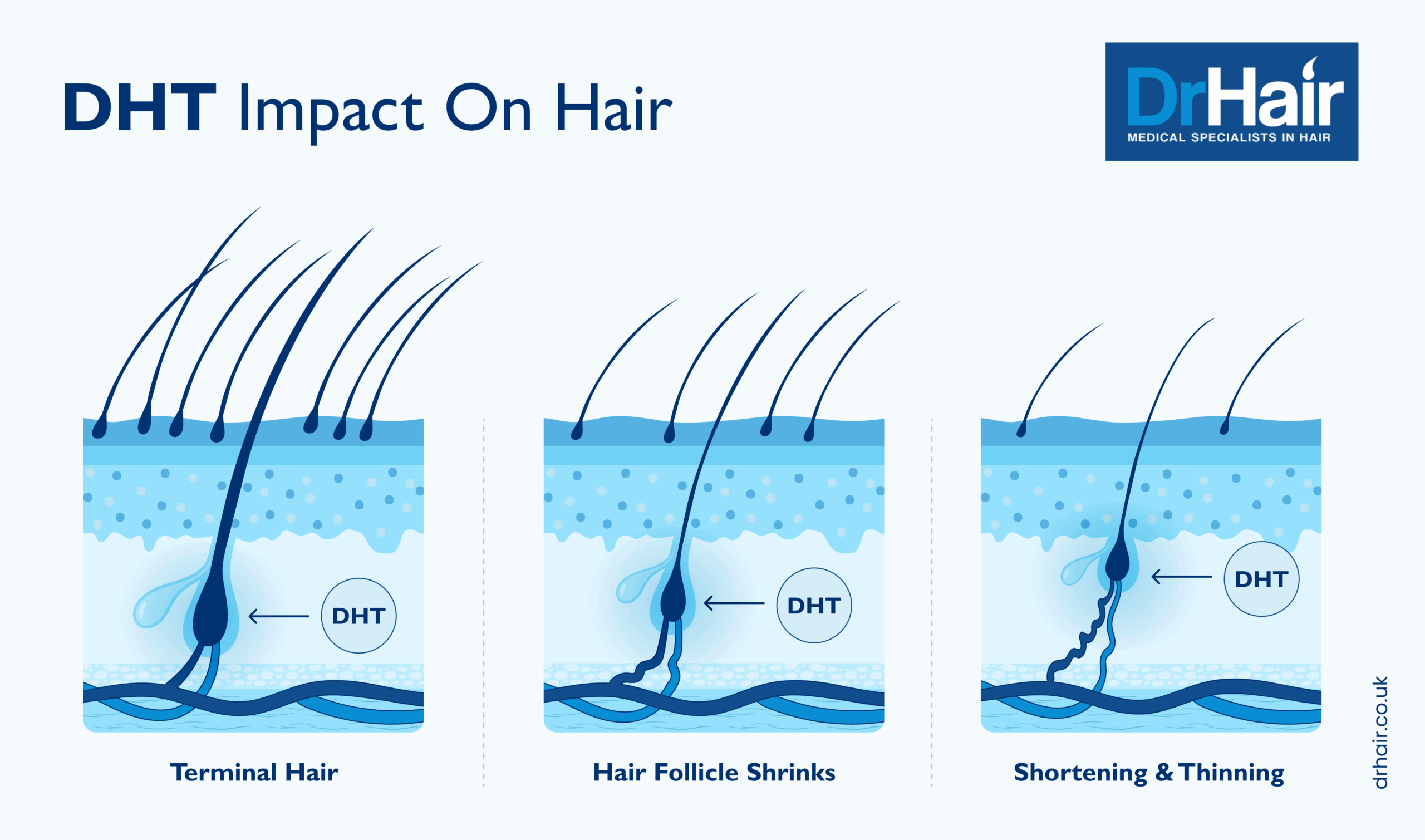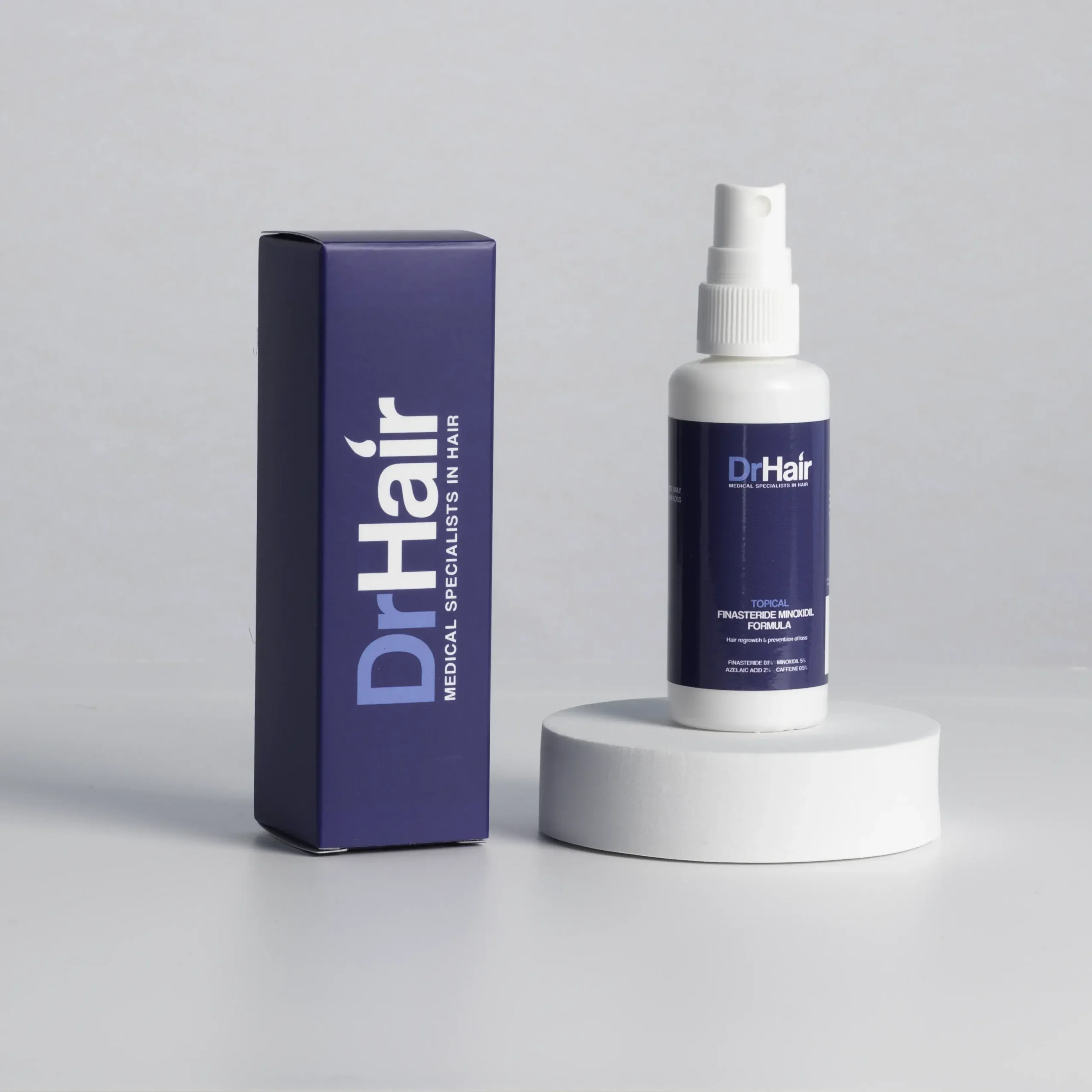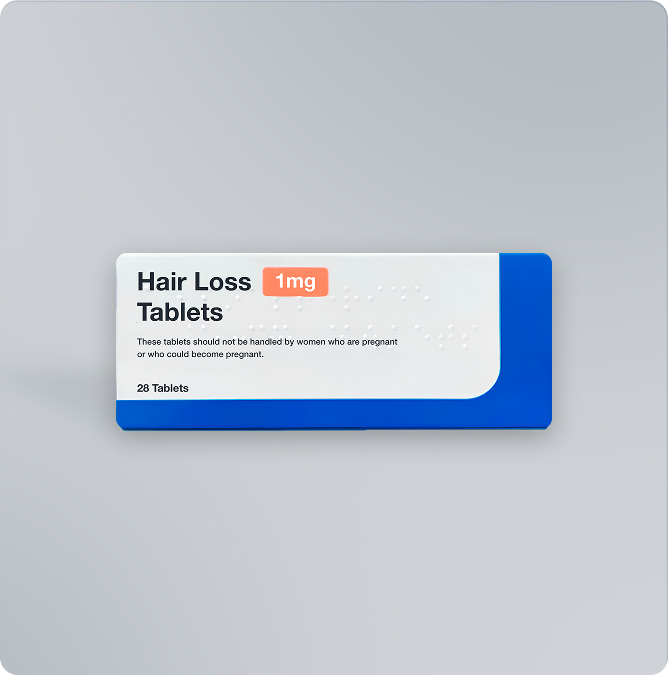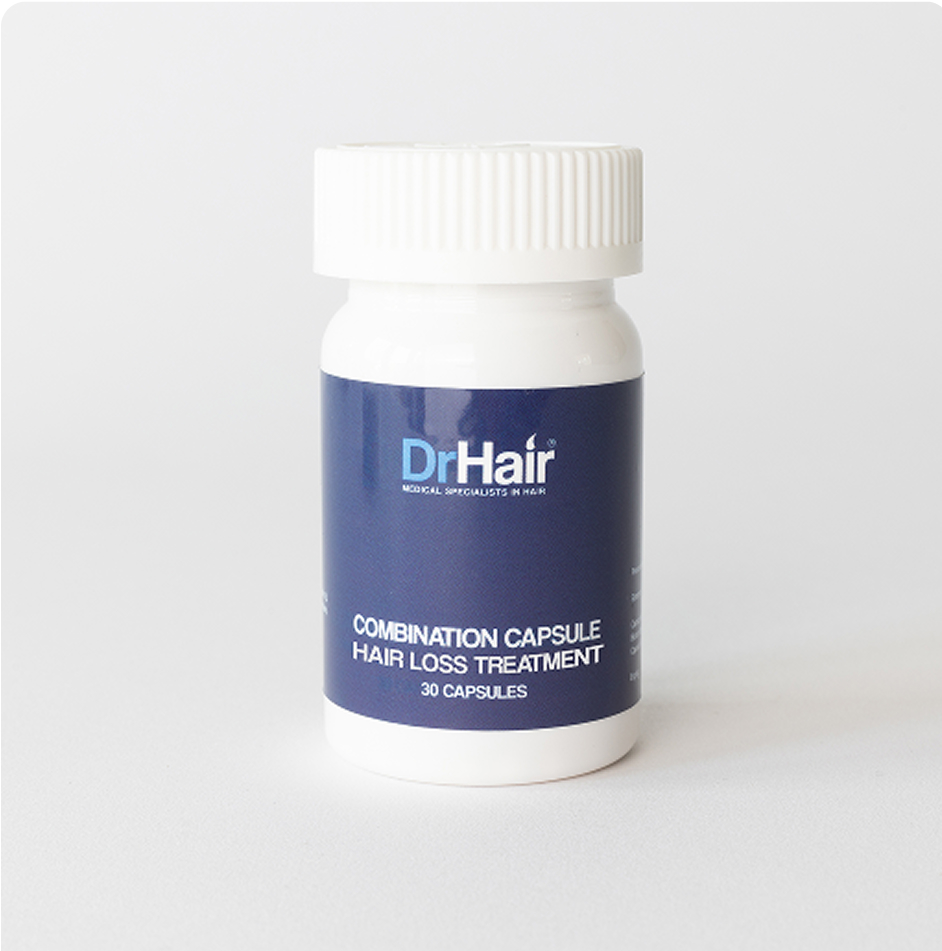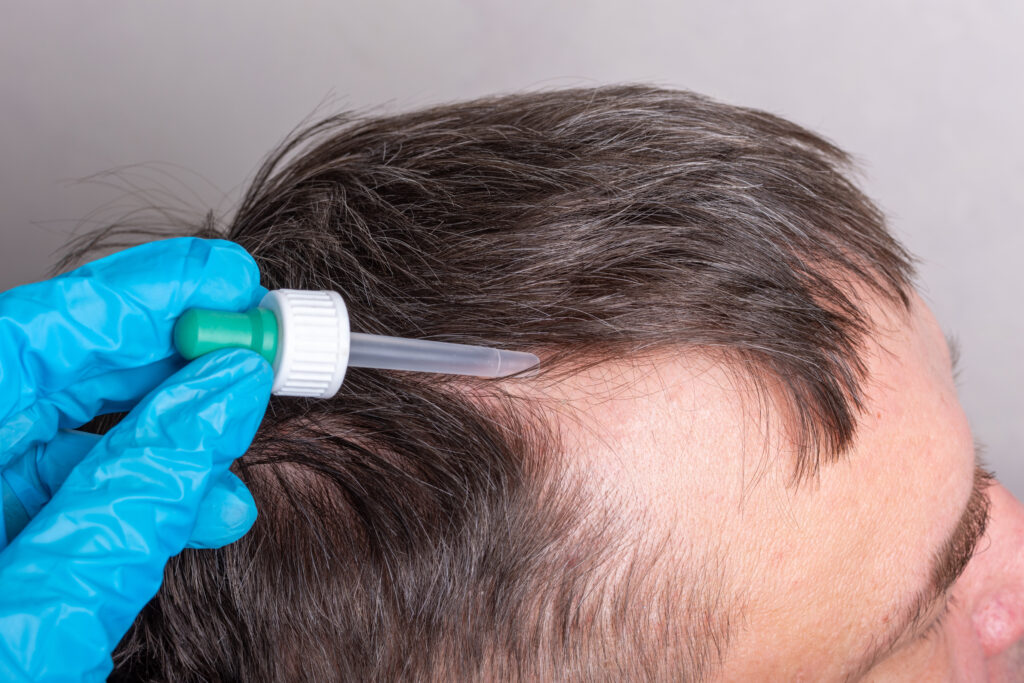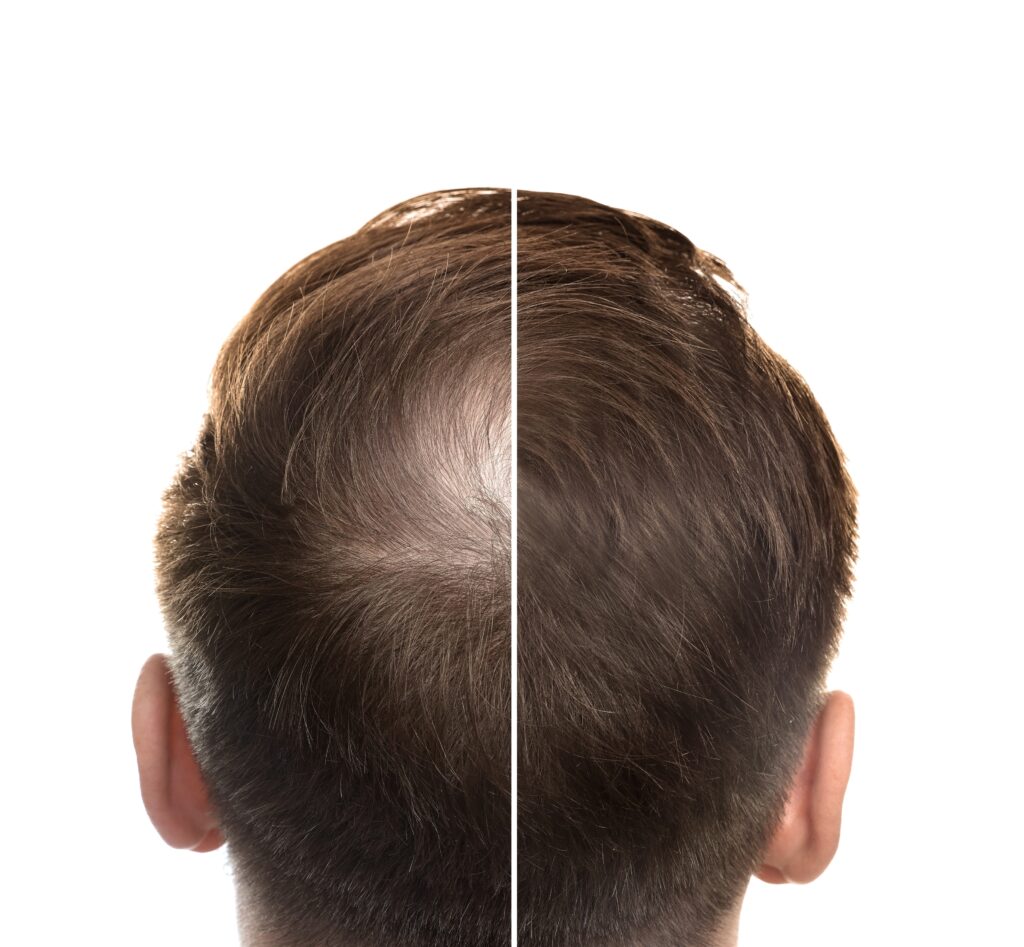Finasteride helps to restore hair in 83% of men with crown hair loss and 70% of those with a receding hairline, making it one of the most effective male pattern baldness treatments currently available [1]. In some rare cases, along with other finasteride side effects, there have been associations for finasteride use with psychiatric disorders, such as depression and anxiety [2].
So how exactly are finasteride and mental health related? Should you be concerned about depression or anxiety if you are using finasteride, or considering using it?
In rare cases, finasteride may have an impact on your depression and anxiety levels. In this article, we’ll guide you through the following to offer a complete picture:
- Whether finasteride has an impact on your mental health.
- The relationship between finasteride and depression specifically.
- The relationship between finasteride and anxiety specifically.
- How to manage depression and anxiety whilst taking finasteride.
Does finasteride affect mental health?
Finasteride may affect mental health in rare cases. Finasteride works by reducing the activity of the 5-alpha-reductase (5AR) enzyme. This enzyme is responsible for converting testosterone to DHT. But studies suggest finasteride can also alter 5AR activity in the brain, which may cause behavioural and mood changes [2].
Further research has shown occurrences where finasteride use has been associated with psychiatric disorders [3] [4] [5], such as:
- Depression
- Anxiety
- Suicidal ideation
Can finasteride cause depression?
Reports of finasteride causing depression are rare. Research has not shown a strong or consistent association, but one study found that depressive symptoms are reported by 3.33% of finasteride users, compared to 2.54% in a placebo group [3].
However, it is important to clarify that this does not mean finasteride use causes depression, as there can be multiple other factors that lead to depression developing. First, it may occur independently. Second, it may be due to the nocebo effect, which relates to how the effect occurs when patients fear or expect side effects from their medication to the level where these expected symptoms actually develop [6] [7] [8]. Also, it’s worthwhile remembering that hair loss itself is associated with higher rates of anxiety and depression than finasteride use [8].
If you do experience symptoms of depression, you should stop taking finasteride and seek advice from your GP. If symptoms become severe or unmanageable, seek emergency help by calling 999 or going to A&E.
Can finasteride cause anxiety?
Reports of finasteride causing anxiety are extremely rare. Research continues to work to establish whether there is a connection between finasteride and anxiety. A recent study found a slight increase in anxiety in patients taking finasteride for hair loss [9].
Another study reported 34% of men surveyed experienced anxiety whilst using finasteride [10]. However, it is important to note this study was focused on exploring how having a preexisting personal and/or familial history of a psychiatric diagnosis and specific personality traits may influence anxiety amongst finasteride users.
Does DHT impact mood?
Though studies are limited in number, some research has shown DHT may also impact our mood [5]. In animal studies, research has shown DHT may reduce anxiety, so finasteride’s action of inhibiting DHT may lead to higher levels of anxiety [12]. However, it is important to note these results may not translate to humans.
Finasteride works for hair loss by inhibiting the activity of an enzyme called 5-alpha-reductase [11], which converts some testosterone into another male hormone called dihydrotestosterone (DHT). Excessive DHT binds to androgen receptors on your hair follicles, making them shrink and produce progressively finer hair until it stops growing altogether.
Who is at risk of finasteride anxiety?
Research has found that younger men (under 40) may be at a slightly higher risk of finasteride anxiety [9]. However, research is not conclusive and more work needs to be done. Also, it is useful to consider that the population who take finasteride is commonly men, many of whom are under 40, which makes it difficult to compare against other population groups who do not use finasteride so commonly.
How to manage your depression and anxiety when taking finasteride
Managing your depression or anxiety when taking finasteride is helped by:
- Talking to your doctor
- Focusing on your lifestyle
- Exploring alternatives
Talk to your doctor
It may be that the depression or anxiety you are experiencing is coming from another source, so it’s best to consult your doctor to understand the situation better. They can help rule out any underlying health conditions or lifestyle aspects that may be contributing to your mood and experience. If necessary, they can also refer you to a specialist who can offer a treatment meaning you don’t have to stop using your finasteride.
Lifestyle
Sometimes making even small changes to your lifestyle can have a big effect on your mental health. Consider things like a healthy diet, regular exercise and relaxation methods to keep stress levels down.
Alternative treatments
You can always switch to alternatives like minoxidil or our topical finasteride and minoxidil formula. Topical finasteride works in the same way as oral finasteride, however, it lowers scalp DHT levels without decreasing DHT levels in the bloodstream. As a result, side effects generally experienced with oral finasteride are unlikely to occur when using topical finasteride.
Get the safest and most effective hair loss treatment with DrHair
Overall, reports of anxiety and depression as a result of finasteride use are not that common. However, research is ongoing and if your mood is impacted further and symptoms of depression or anxiety are experienced, you should stop taking finasteride and consult your GP.
If you’re concerned about the side effects of finasteride, you can opt for our Finasteride + Minoxidil formula, which offers the full effectiveness of both medications with fewer side effects than oral finasteride. Our studies show this combination is 94% effective against male pattern baldness [13].
If you want to ask more questions, we have an expert waiting to answer your questions. Simply book an online consultation with our doctor-led support team and they’ll discuss all of the risks and benefits of our hair loss products.
FAQ
A slight association has been made between finasteride and anxiety [9]. However, research is limited and anxiety can stem from other areas of life whilst taking finasteride, too.
Low DHT may influence depression. Research has shown a minimal yet significant change in depression scores after taking finasteride. However, the relationship is complex and this side effect is not commonly reported.
In 2024, the UK government released a statement urging finasteride users to monitor their moods closely and be aware of signs of depression [15].
These include psychological symptoms, such as:
- Continuous low mood or sadness
- Feeling hopeless and helpless
- Having low self-esteem
- Feeling tearful, guilt ridden
- Feeling irritable and intolerant of others
As well as physical symptoms, such as:
- Moving or speaking more slowly than usual
- Changes in appetite or weight
- Constipation
- Unexplained aches and pains
- Lack of energy
And finally, social symptoms, such as:
- Avoiding contact with friends
- Neglecting your hobbies and interests
- Having difficulty in your home, work or family life
If you are concerned about depression, we encourage you to review the signs and symptoms of depression.
Depression from finasteride is rare, and will generally go away once finasteride use is stopped. In some rare cases, it may persist and you may need to speak to your doctor.


